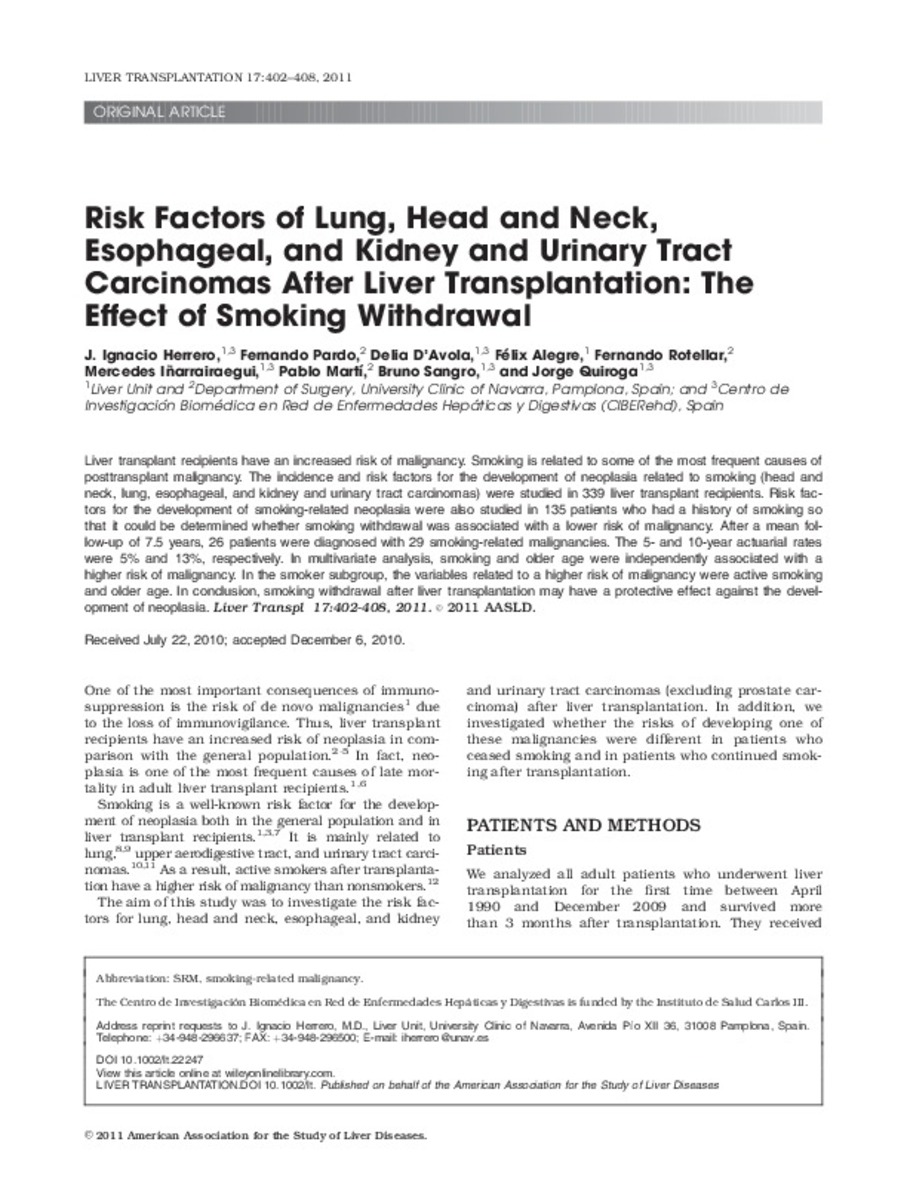Risk factors of lung, head and neck, esophageal, and kidney and urinary tract carcinomas after liver transplantation: the effect of smoking withdrawal
Palabras clave :
Esophageal Neoplasms/etiology
Head and Neck Neoplasms/etiology
Kidney Neoplasms/etiology
Fecha de publicación :
2011
Editorial :
Wiley-Blackwell
Cita:
Herrero JI, Pardo F, D'Avola D, Alegre F, Rotellar F, Inarrairaegui M, et al. Risk factors of lung, head and neck, esophageal, and kidney and urinary tract carcinomas after liver transplantation: the effect of smoking withdrawal. Liver Transpl 2011 Apr;17(4):402-408.
Aparece en las colecciones:
Estadísticas e impacto
0 citas en

0 citas en

Los ítems de Dadun están protegidos por copyright, con todos los derechos reservados, a menos que se indique lo contrario.







